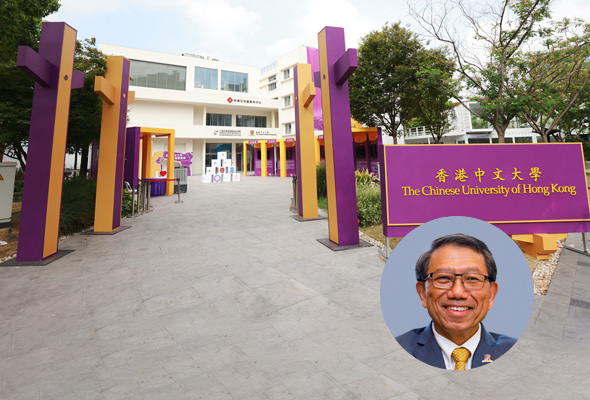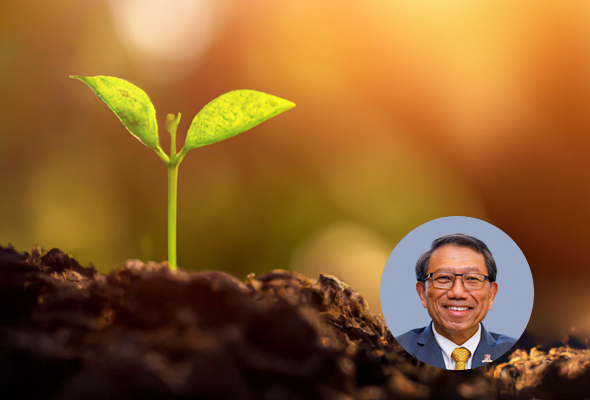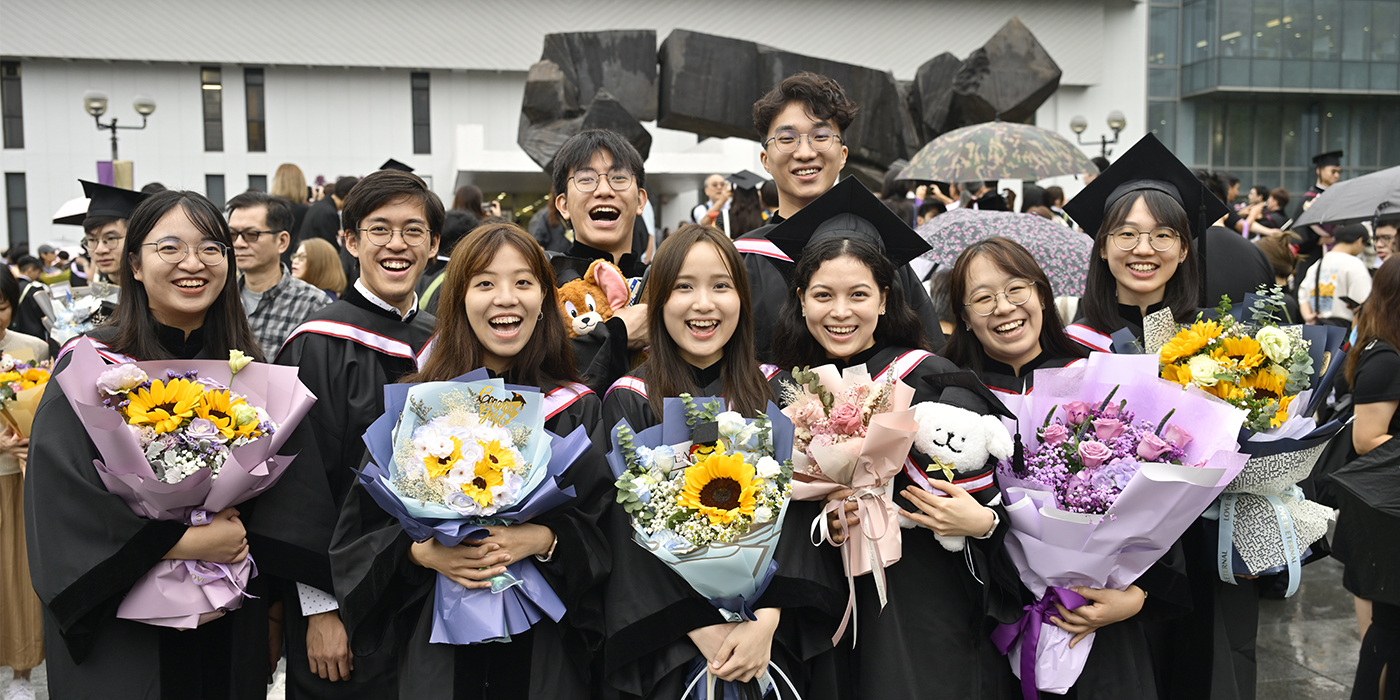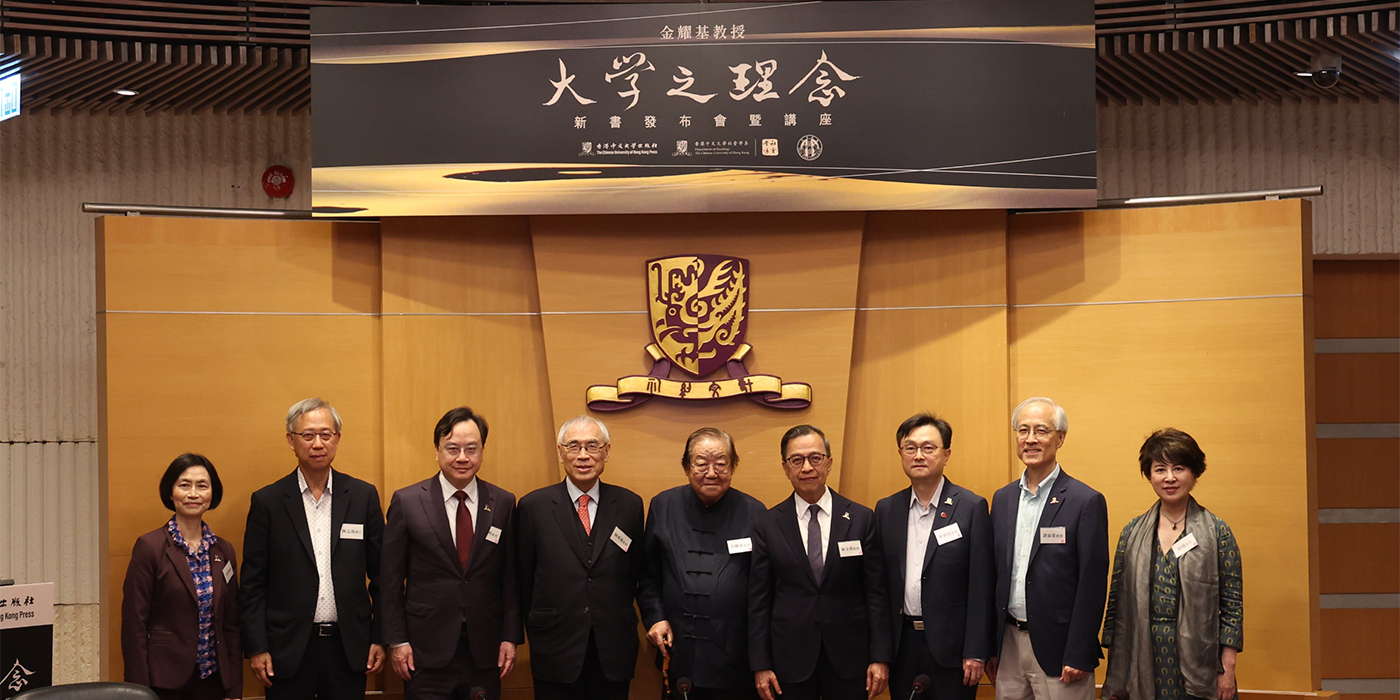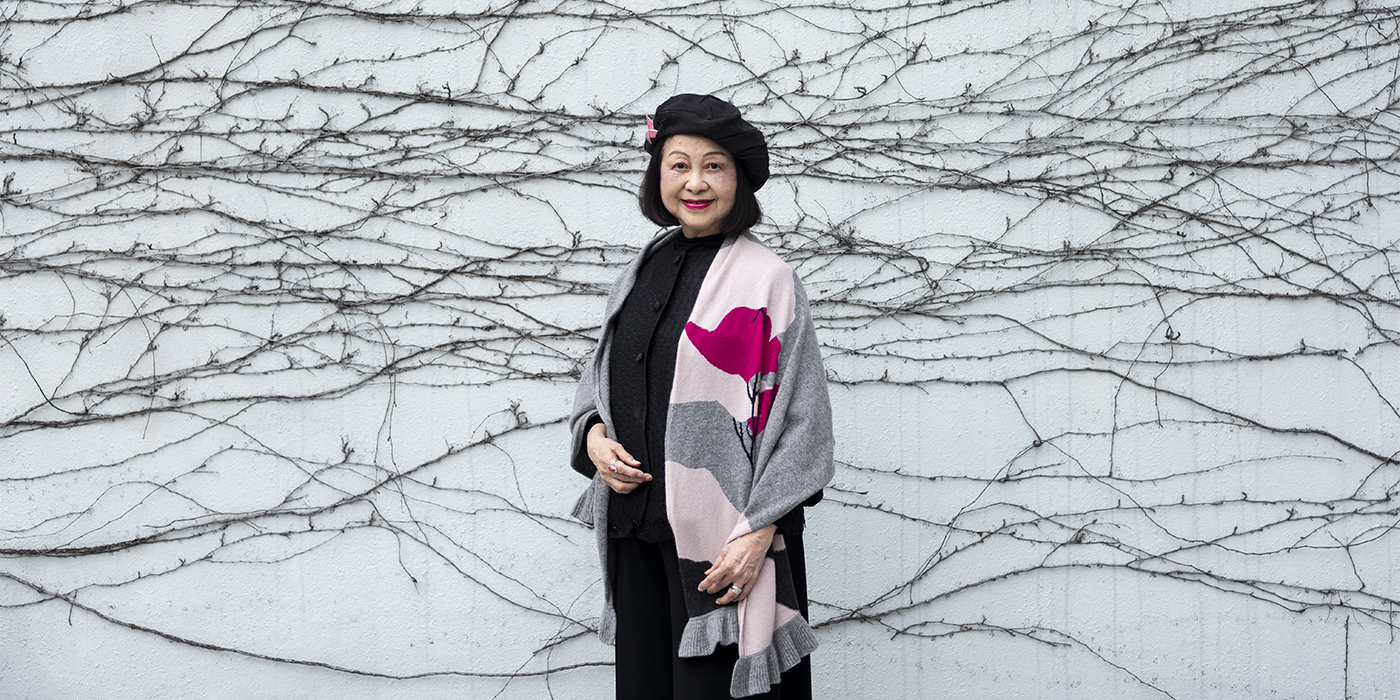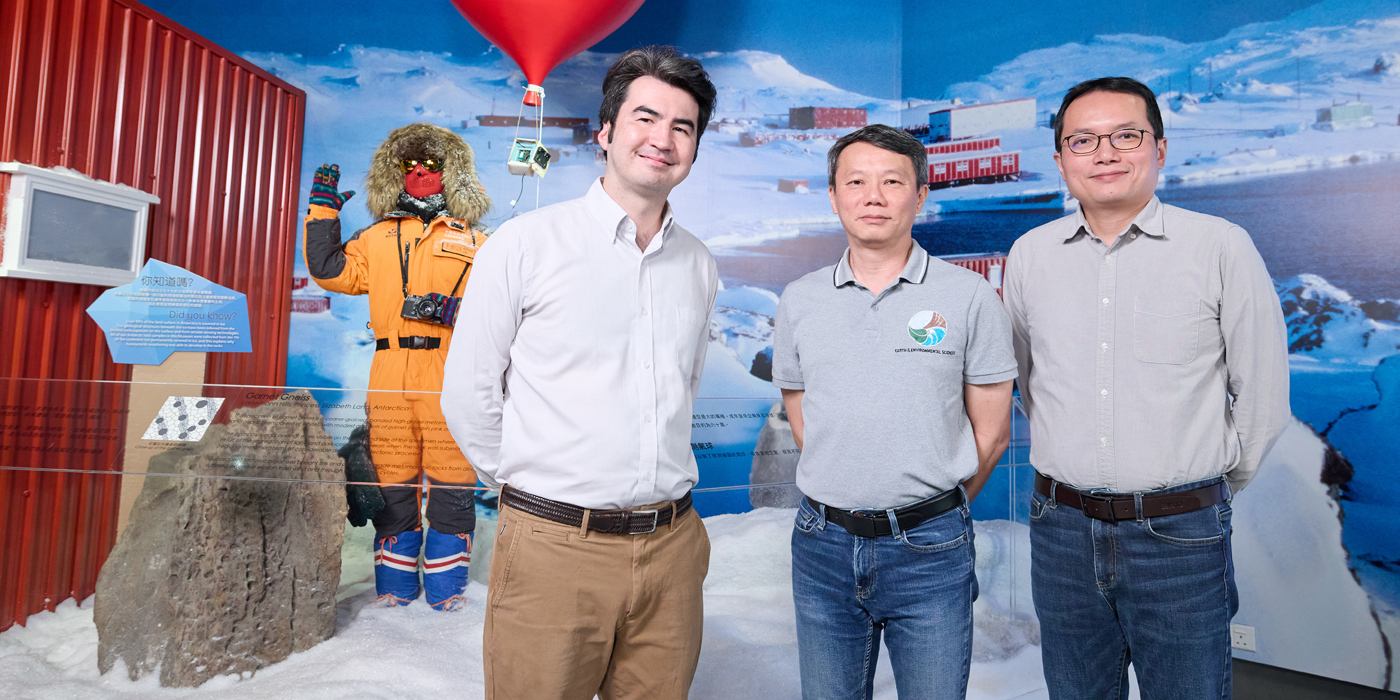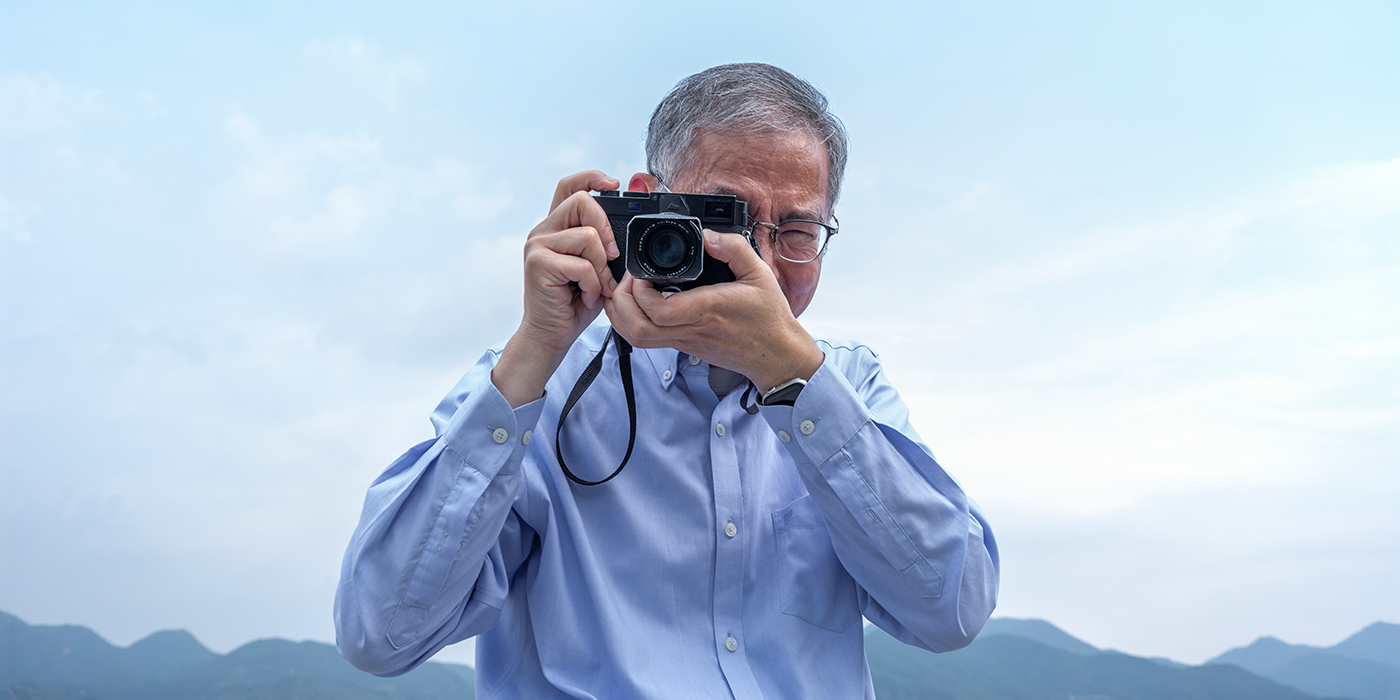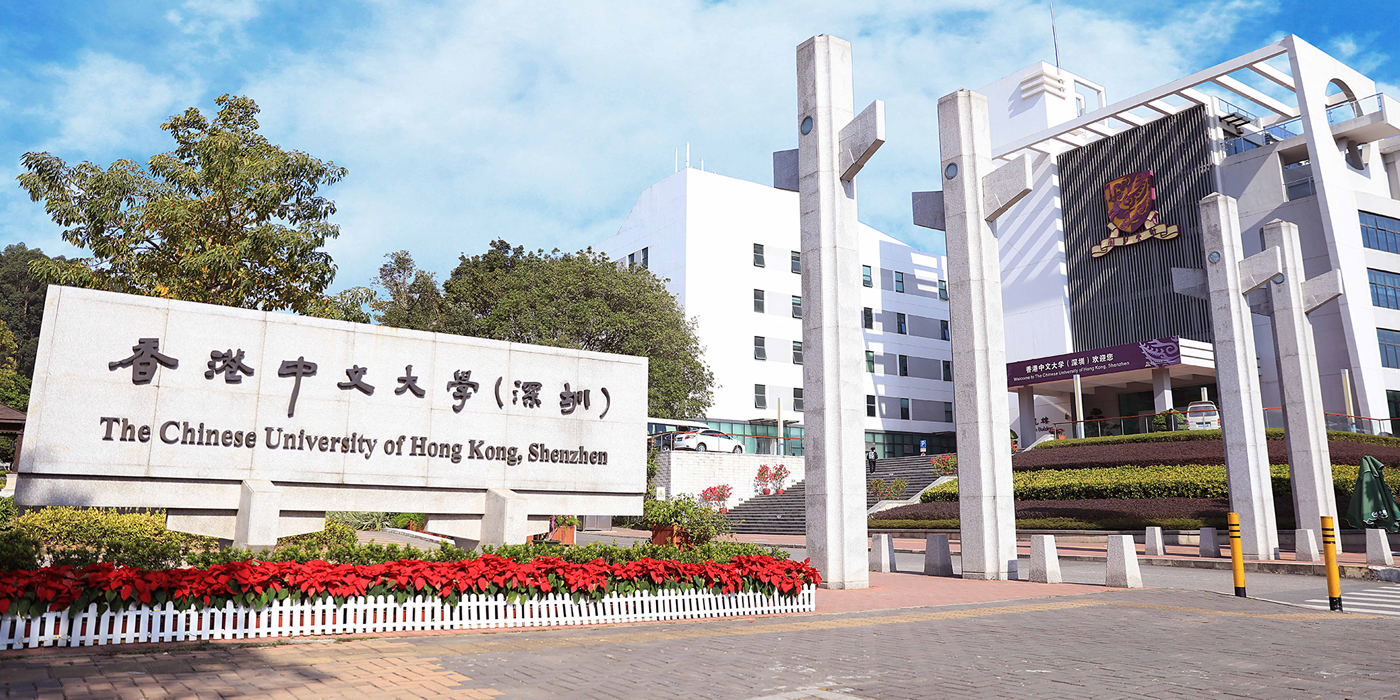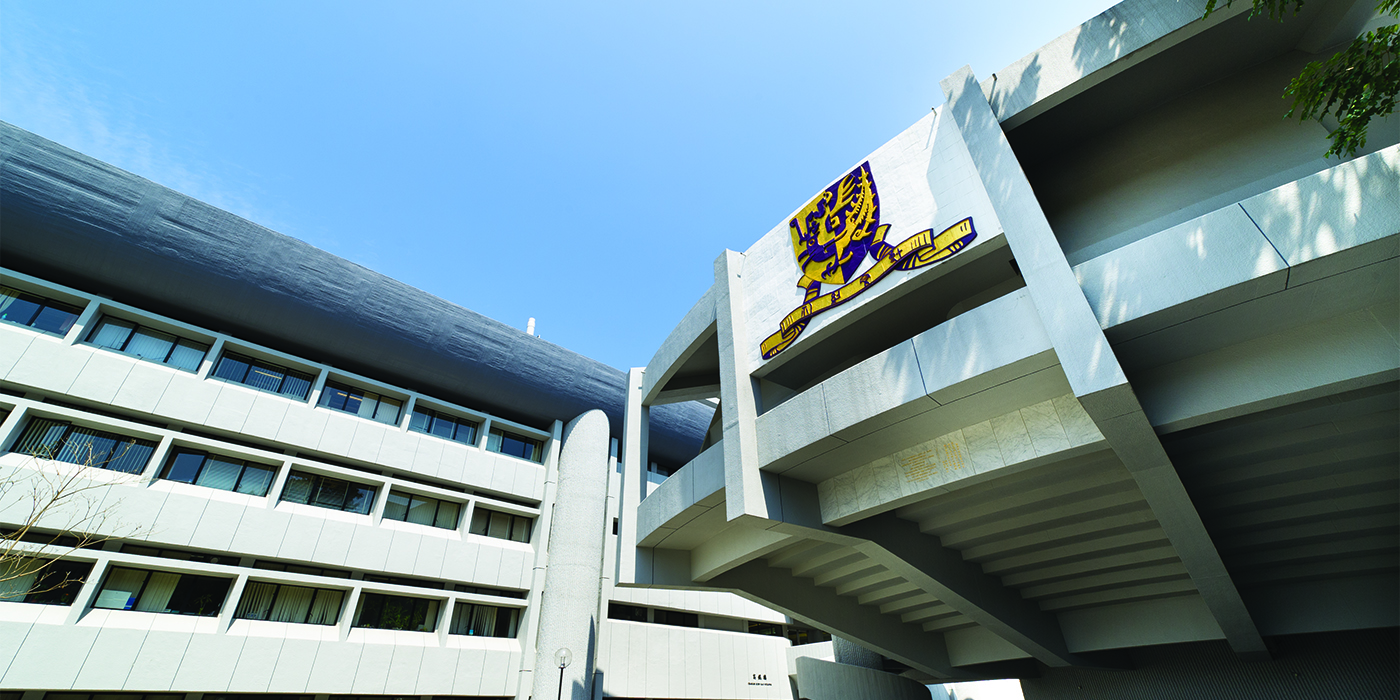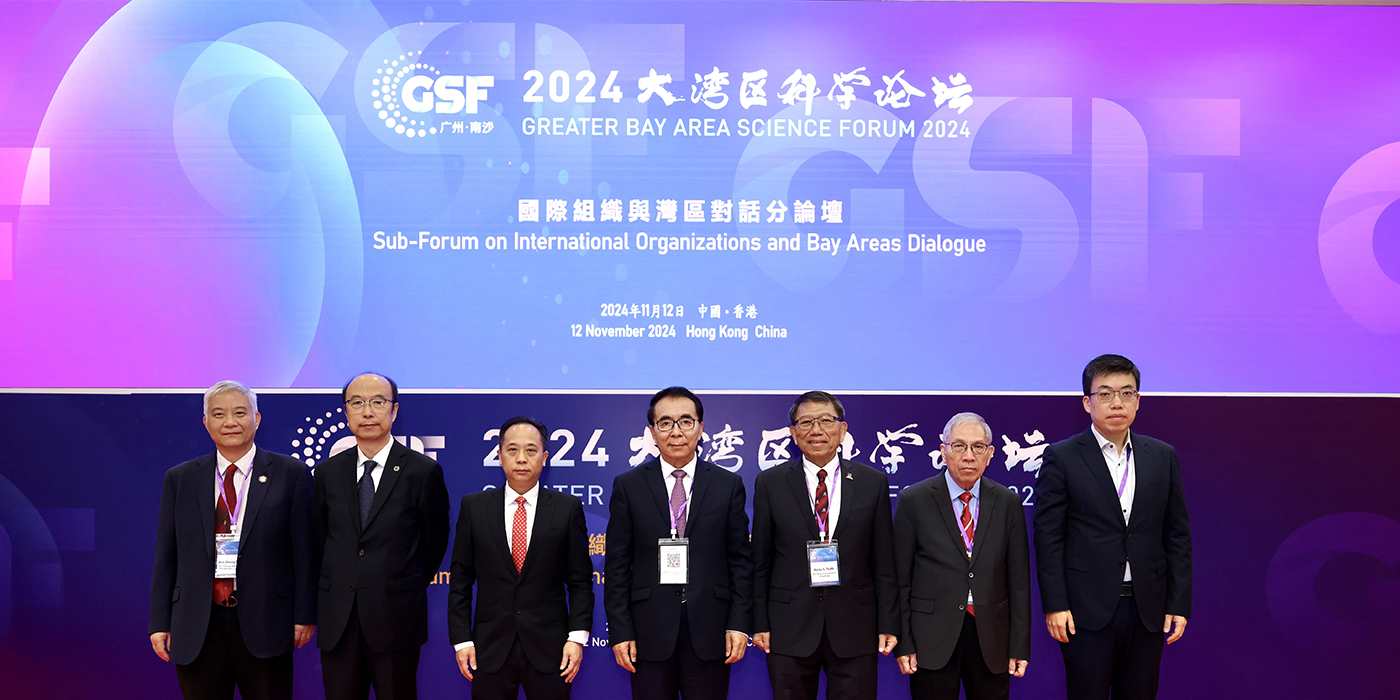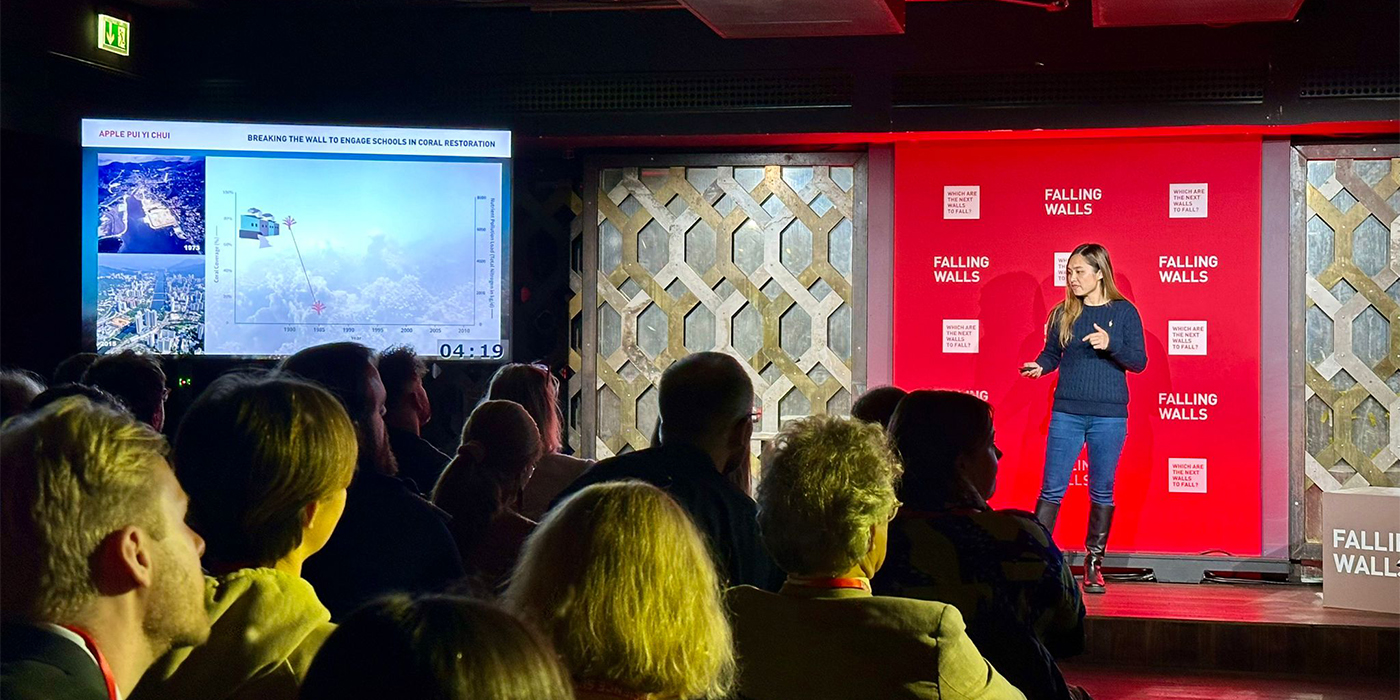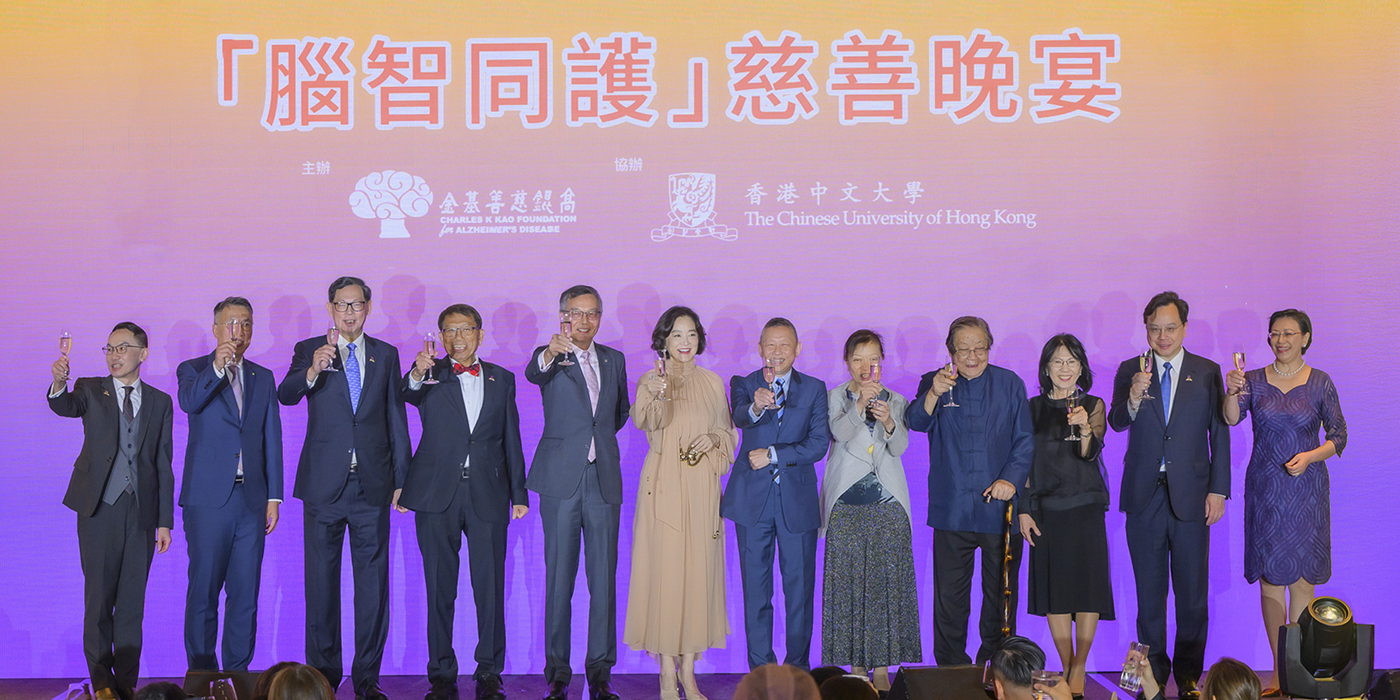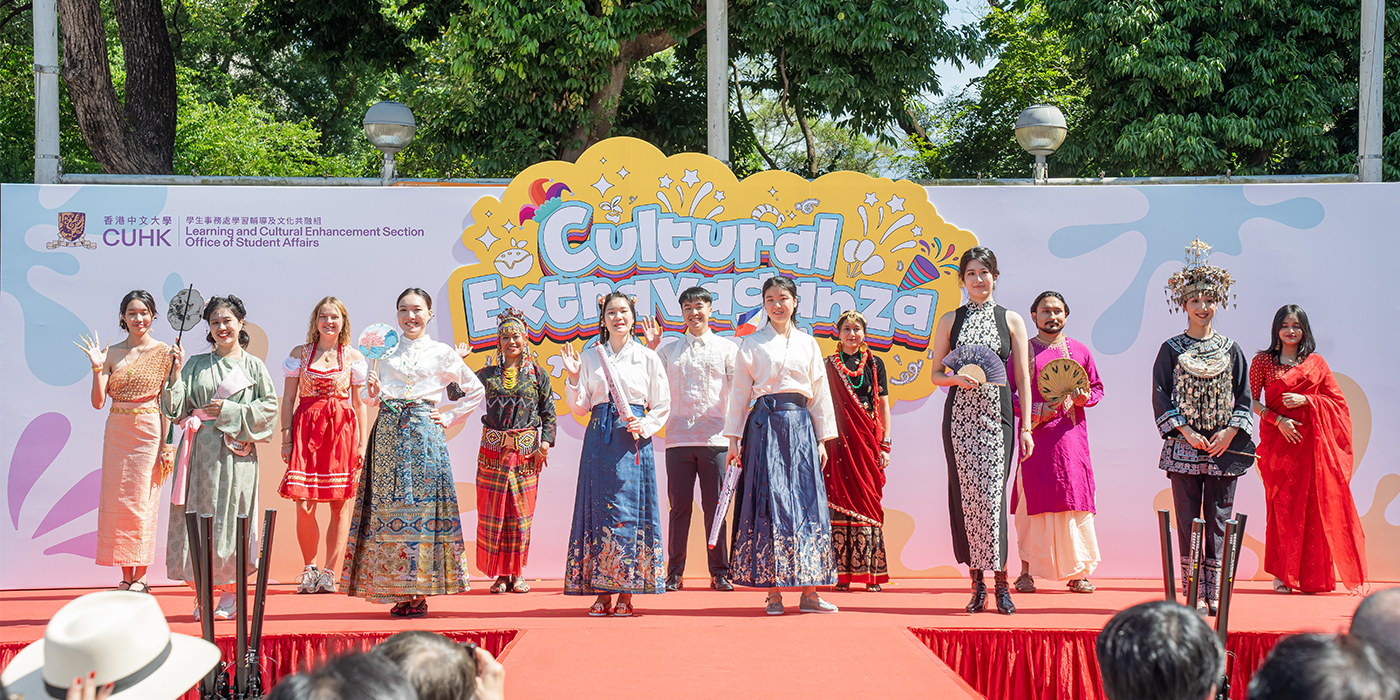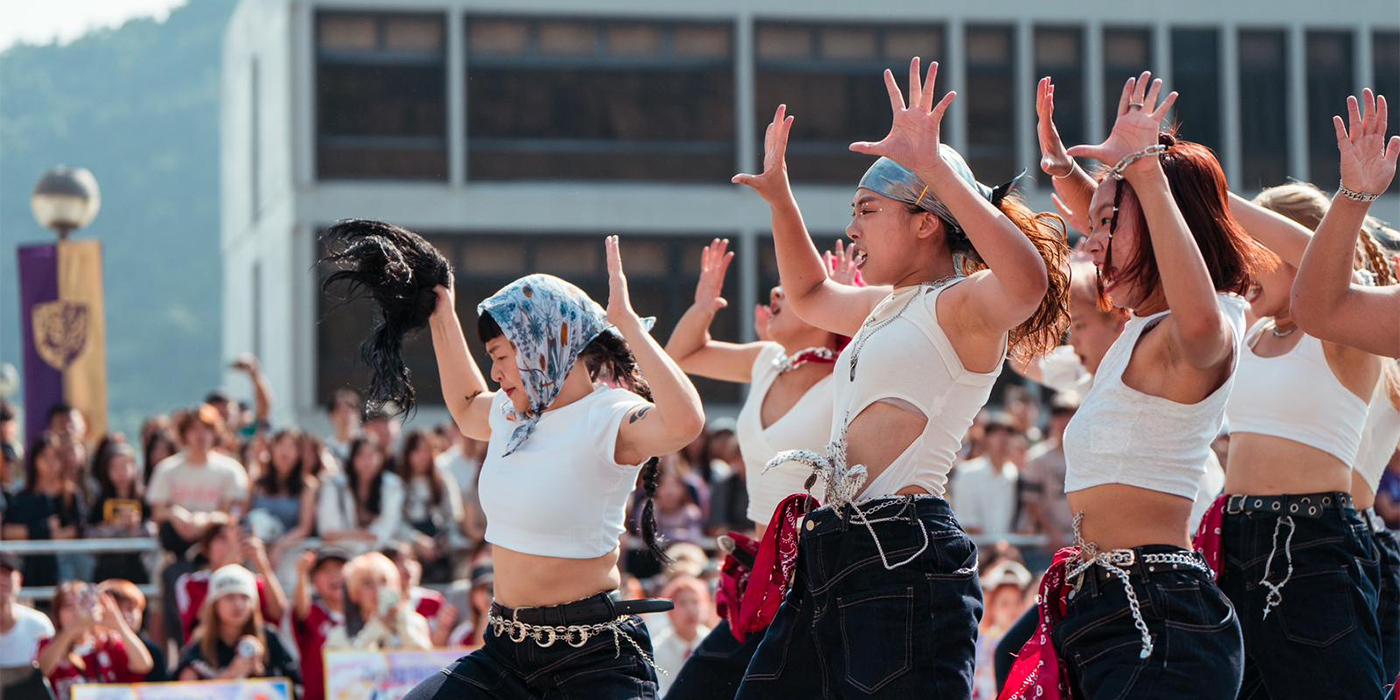Remembrance of things past
New faces of Hong Kong government remember their time in CUHK
There are several new faces in current governing team of the Hong Kong government, including four CUHK alumni. They are director of the Chief Executive’s Office Carol Yip Man-kuen, Secretary for Home and Youth Affairs Alice Mak Mei-kuen, Secretary for Labour and Welfare Chris Sun Yuk-han, and Secretary for Innovation, Technology and Industry Sun Dong. They come from different colleges of CUHK, and have their own backgrounds and stories to tell. This feature article marks the rare occasion where these four political appointees came together for the Alumni Magazine, sharing their memories of the good old days in the hope of inspiring students currently studying at the University and those in the years to come.
Participants:
Sun Dong
Carol Yip Man-kuen (Yip)
Alice Mak Mei-kuen (Mak)
Chris Sun Yuk-han (Chris Sun)
How they arrived at CUHK was the first thing they talked about in the interview. They chose their different disciplines for different reasons – but they all agree that choosing CUHK was the best decision of their lives.
Sun Dong: My arrival at CUHK’s Faculty of Engineering was something of a random occurrence – perhaps even an intervention from fate. I was studying for a PhD at Tsinghua University, researching medical machinery (at the Department of Precision Instrument). One day the department head told me that there was an opening in Hong Kong and asked me if I wanted to go. I didn’t know which university it was, but I said yes anyway; over a year later I was notified that it was CUHK that had taken me in. I was perplexed: wasn’t “The Chinese University of Hong Kong” solely for learning Chinese? Anyway, at CUHK my supervisor researched robots, similar to what I’d been doing at Tsinghua, so I stayed here to do research on that.
Mak: I was more “live and let live” as a person: having finished my A-levels, I decided to further my studies in whichever subject I’d gotten my best results in, in whichever university that would offer me a place. I wasn’t a person who planned much, didn’t even like queueing to enrol for classes. If there was a vacancy in a class, I’d enrol in it.
Yip: I originally wanted to enrol in the Department of Social Work – I’d seen the 1976 TVB drama Social Worker and really wanted to help people. But my father said that I was an emotional person and bound to get frequently affected by all the sadness around me. Then my elder brother had an idea: he said that since I was so earnest, I’d probably do better in the government, so I chose GPA (government and public administration). What they didn’t know was that although the “G” in “GPA” stood for “government”, there were a lot of political topics to learn about too – it wasn’t necessarily linked to jobs in the government.
Chris Sun: I chose CUHK mostly because of the introduction of the Provisional Acceptance Scheme. In those days CUHK and HKU were the two universities vying for outstanding students, and when I was in Form 6 our headmaster said they would give us forms to fill in. The forms asked if you would consider enrolling in CUHK through the Provisional Acceptance Scheme; this meant that I might get into university without sitting my A-levels (former examination open to Form 7 students), so I ticked “yes”. Next was choosing my discipline: I favoured either medicine or business administration (BBA), but I ended up not choosing medicine because I couldn’t dissect mice. If I couldn’t deal with mice, then how was I going to deal with surgeries for humans? I forwent that option, and since the BBA programme in CUHK was popular then, I picked that. But I entered government right after graduation – I never did anything in the business sector. When I was working at the Financial Services and the Treasury Bureau between 2017 and 2020, I found it interesting that my job duties basically covered what I’d learnt all those years ago. It certainly stimulated my interest in work – it was like the memories of studying at university had come flooding back.
Talking about their CUHK days, their sentimental journeys transported them from the government offices right back to the hillsides of CUHK. The innocence of those crazy times filled them with nostalgia.
Sun Dong: When I got my first pay cheque from CUHK, I found that my salary had suddenly increased by HK$9,000. I’ve always remembered this: back then the value of the Hong Kong dollar was higher than the renminbi, so when I received it I was really excited, it was so unforgettable. Another thing I’ll never forget is from before my arrival, as I didn’t know anything about CUHK – what would a Hong Kong university look like? When I arrived I realised it was a very beautiful campus. This was a university which was well-connected internationally, which was very impressive; and a lot of my teachers had brilliant backgrounds in research. The way they taught and studied was very different from the mainland, and it left an indelible impression on me.

‘Hard-standing’ all the way to Beijing
Yip: I remember when I was in Year 2, I joined the GPA student association and had to organise activities, and one of the activities we did was an exchange programme with Peking University (PKU). Back then the students took understanding the motherland seriously, so more than 30 people joined. The train ride to Beijing took 30 to 40 hours, and we had chosen the “hard sleeper”, with a price between the “soft sleeper” and the “hard seats”. But it was only when we’d caught the train that my classmate realised that they’d lost the tickets for the entire group. The train was severely overbooked and all the seats were already taken, so we had to beg the conductor to let us do some “hard standing” on the carriage. And stand we did, for over 30 hours in an overcrowded carriage – what an unforgettable experience. When we arrived at Peking University for our exchange with mainland students, we stayed at their hostels: CUHK was a very working-class university back then, but the hostels and study environment at PKU were worlds apart from CUHK. The top students there had to study in an extremely tough environment. I learnt to treasure what I had at CUHK even more.
Mak: Studying at CUHK gave me the four happiest years of my life. My unforgettable memories are also from Year 2, when I had to develop an organising committee representing the Department of English for the opening day for New Asia College. I was in charge of public relations, and one of my routine duties was to create large promotional banners to hang from the water towers at New Asia and United Colleges whenever there was a celebratory occasion. We wanted to innovate, and we thought the conventional fabric-based banner wasn’t beautiful enough, so we switched to plastic and stuck all our materials on it. We toiled for several days and nights before hanging it on the water tower. But this move just showed up our inexperience: we hung it on in the morning, but winds had already torn it off by the afternoon. This made me understand that you need to think through everything before doing tasks: it isn’t just about the aesthetics.
Yip: When I think back on that exchange to Peking University, the thing that strikes me most is how eloquent and vigorous the mainland students were whenever they had a discussion or debate. We had a small subsidy for the exchange programme, so we had the chance to treat them to soft drinks and beer, which was quite nice. The students I met at Peking University became my pen pals for years, we wrote to each other – it’s something to remember from university life.
Beyond studying, the most exciting aspects of university life are inarguably hostel life and cabinet accessions. There are endless topics to discuss, endless anecdotes to share – all of which create camaraderie between classmates.
Chris Sun: When I joined a student association in Year 1, the biggest shock I received was the consultation session. Our predecessors had loads of questions to ask, and at first I struggled to answer them: they’d question you on how you could actually help out, or set up scenarios and ask what you’d do under specific circumstances. We didn’t have any experience, so were prone to be left speechless; but after a night’s sleep I figured it out: we should just let them ask their questions, but give our own answers. In other words, no matter what the other side asked, you had to circle back to your own story, while fluently and confidently talking about your own beliefs, and set aside their problems. The older students’ questions were traps in themselves, and you could pass simply by asking them for guidance.
Yip: In those days the residential students’ associations had to come up with ideas to engage students throughout the hostel. They came up with a “red-green song contest” – if there was competition, then that would boost morale. Back then the TVB drama Young’s Female Warriors was being broadcast, and we participated as part of the red team. We imitated lead actress Liza Wang with her red spear, and we also choreographed a few moves and tricks. It was really difficult, and I had to ask my father to teach me a few tricks, but when we performed the applause was universal. The green team did their best that night, but the red team still won.

Chris Sun: Another unforgettable experience was queuing through the night to enrol for courses. I don’t know if there’s still such an arrangement nowadays or it’s still a thing in this day and age, but back then the sought-after subjects engendered long queues. My longest experience was queuing for a day and a night, and it wasn’t even for me – it was for my girlfriend at the time, who’s now my wife! I can’t remember which course it was, but I do remember that enrolling for them was tough.
Mak: Carol and Chris, your other halves were also from CUHK?
Yip: Haha, I also met my life partner while organising events for the residential students’ association!
Furtive lodgers, playing by the rules
Mak: I stayed in a room as an “unpermitted guest” for two years. Hostel life was a very happy experience, and back then they allowed one year of hostel life for every student during their four-year study period. I was president for the department society in my second year, so I could live in the Grace Tien Hall. The two years after that, I stayed as a long-term “unpermitted guest” – although I did buy night passes when necessary. I saved those tickets up, but I lent them out for the Founders’ Day celebrations as an exhibit, and never saw them again.
Yip: I lived in hostels for all four years, and you could say that I was completely unchained. Back when I was in secondary school I was a good girl, always toeing the line and getting home on time, living my life with discipline. When I arrived at the hostel, I found myself in control of my life. Back then, I think the hostels locked the doors at eleven, and I would come back too late – I lived in the Adam Schall Residence in United College, and there was scaffolding over the back stairs at the time, so I would climb that to get back to my room if I’d come back too late. I remember once climbing to the second floor, craning my head and coming face-to-face with Mr Ho, who was doing the rounds just then. Everyone was so shocked, we both let out a yelp! Back then my hostel warden was Father Kane, probably an Irish priest; he loved us dearly and treated us like his children. His kind tolerance and sensitivity was something I’ll remember for the rest of my life. The hostel was my home away from home, filled with memories I’ll never forget.
Mak: One year when CUHK was holding a lunar new year market, my roommate and I, along with a few other friends, successfully bid for a stall where we sold ci fan (sticky rice rolls). Nobody wanted those, but the fried dough sticks inside sold well. So when I suggested a food market for the “Happy Hong Kong” campaign, the inspiration came from this, haha!

Chris Sun: I also lived in a hostel for four years, and had those night passes for my two years as an “unpermitted guest” – if you didn’t have them at Ying Lin Tang, the boarders would evict you for sure. Back then I was a really shy person, and when college orientation came around I thought my chances for a hostel place were doomed. So I bucked up, and asked a campmate that I’d known for only five days if he’d take me in. He was too nice to say no and gave me a vague promise, so I went and lived with him in Ying Lin Tang’s largest five-person bedroom. There were seven of us in that room, and I slept on a camp bed that I folded up in the morning. But I felt life was good like that.
Sun Dong: Back then I lived in the postgraduate halls, but I couldn’t find it on my first day after arrival, so I went to the Yale guesthouse to stay the night. The next day everything was arranged at the hostel, so I moved in, only to find that my roommate was a classmate from Tsinghua. I was so surprised to meet up with old classmates in Hong Kong!
It wasn’t just events of the past that they remembered – the teachers, too, had left an impression with their patient guidance. Not only did they teach students knowledge on the page, they also led them on the path to maturity – things which they have taken to heart for a lifetime.
Chris Sun: Two professors made a particularly deep impression on me: one of them was Dr Kitty Yeung, who’s no longer with us; she taught industrial management. She used to work at a bank, and then came to teach at uni. Industrial management had an extraordinary number of presentations, but she thought I was too obnoxious, always showing up classmates with questions. One day, she said: “Some people are so pushy, but I’d prefer it if they worked harder instead.” I think she wanted me to be humbler – it wasn’t okay to keep asking classmates questions they couldn’t answer; better to work on your own knowledge. Another professor was Professor Philip Shen, head of Chung Chi College; every week he would repeat the same old refrain during assembly: “Firstly, the most impressive achievement you can have in four years of university is to find your partner – that is what’s most important!” That was his primary teaching, so I still remember him for that these days.
Yip: In the Department of Government and Public Administration, the thing we did best was “rambling”. One of our subjects was taught by former president of the Legislative Council Andrew Wong Wang-fat, and we took this class in the canteen. The students would drink beer while arguing about philosophical or political issues until they were red in the face; sometimes we would just eat and drink in the canteen and chat, to the point where we’d forget to go to our next lesson.
Mak: When I studied English, I was taught poetry by Professor Yuan Heh-hsiang. He had a very unique way of teaching: his lessons were simply him reciting poetry, and nobody had to take notes. We gave him the nickname “Haha Yuan”, because he laughed out loud every time he finished a poem – I still remember “Haha Yuan” to this day.
Remembering Vice-Chancellor Charles Kao
Mak: I have a particularly deep impression of Vice-Chancellor Charles Kao. When I was at CU they were renewing the curriculum, and after every lesson the students could evaluate their teachers. We argued for open-ended questions, so students could say what they wanted. Back then I was a student representative on the Senate, with the Vice-Chancellor as the chairman. One of the students suddenly broke ranks and produced a document, demanding that it be discussed. The Vice-Chancellor was really shocked, but he recovered his smile and acquiesced – Professor Kao respected and tolerated the student. After the meeting, somebody reminded us that such discussions could be admitted into proceedings, but there were certain procedures that had to be followed. Luckily the Vice-Chancellor gamely dealt with the questions we raised.

Chris Sun: I think the professors at CUHK are slightly more down-to-earth. If your class is too early, you can choose not to take it; if you don’t like what’s being taught, you can simply sit in silence at the back of the classroom, and you can wear whatever you want. It isn’t like the English universities, where the professor reigns supreme and you have to listen to his every instruction – they don’t do it like that here. Furthermore, CUHK collaborates with quite a few American universities, and there were a lot of visiting professors from other unis. I singled out their courses to study in, just to take in their teaching styles and their different viewpoints.
Yip: I remember in Year 1, Chinese was a compulsory language course. Even when students dozed off, the teacher would never berate them for it, instead sincerely urging the students to “take pleasure in the here and now”, and this become a motto of mine. Life is full of twists and turns, and you might not be able to control everything, but one should never complain about their current situation. When you throw yourself into anything, you will find things to appreciate and to take pleasure in, and other people will admire you more for that.
Mak: The few years I spent at CUHK were the happiest and most carefree days of my life – I treasure both the opportunities to gain knowledge in classes, and also the relationships I built with friends outside class. When you face challenges in your life thereafter, you will always find these comrades by your side – and if you can find your other half like Carol and Chris, so much the better!
Engaging in scholarship and perseverance, shining in pursuit of excellence are unchanging tenets of university life. But to live it out is no easy task – here they share their own experiences to succeeding generations.
Chris Sun: In conclusion I learnt three things at CUHK. One was how to live on my own: after getting into CUHK I went home as infrequently as I could, trying to live independently just as I had come of age, and getting to know myself. University life is a chance for you to ask yourself what you want. At first things might be a bit murky, but you will find the answer soon enough. Second was to make more friends, as Alice and Carol have mentioned: the friends you meet in university give the most heartfelt relationships. And third was to read more during my university years, and not necessarily those related to my subject: CUHK has a very good library system, and other libraries exist outside the University Library. I loved to meander there during my years as a student, but never did read any books on my own subject – instead I read other books, and never did I read more books than in this period. I hope students can also develop this spirit of reading far and wide.
Yip: I really agree with the importance of reading. Moderners (including me) stare at their phones from dawn till dusk, always checking and replying to messages – I’ve started many a book without finishing any. Reading helps your individual growth, and develops your independent thinking and communication skills. At work you find the latter to be so important: it shows whether your words have substance and the proof to back it up, and that can only come from the knowledge you acquired from books.
Translated by Chamois Chui
Originally published in CU Alumni






